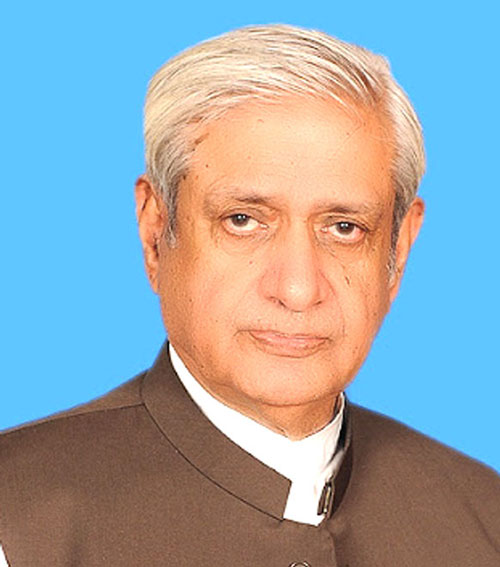Mohammad Arshad Islamabad
Federal Minister for National Food Security & Research Syed Fakhar Imam, Wednesday, said that agriculture was central to the economy and social fabric of Pakistan.
The agriculture sector contributes 19.3 percent to GDP, employs 35 percent of the country’s labour force and contributes to the growth of other sectors of the economy.
“The healthy expansion of the agriculture sector stimulates domestic demand for the for improved food products, industrial goods and supplies raw materials to agro-based industries” he said while addressing the 42nd Conference of the Food and Agriculture Organization (FAO) of the United Nations via Zoom here.
He said that a more vibrant rural economy and increased food security will depend on the county’s effort to stimulate the agricultural sector.
Agricultural transformation will not only raise incomes for small holder farmers, but it will also and more importantly promote expansion of the rural non-agricultural sector ¾ with beneficial effects on rural poverty and social stability.
In the Pakistani context, most of the rural population are linked with the agriculture sector either as farmers, daily wage labourers or rural micro entrepreneurs.
The link between agriculture productivity and rural poverty has an important relationship in the context of poverty alleviation in Pakistan” he added saying, today, the world confronts a looming agricultural crisis.
The global population will soon reach 8 billion people. Six hundred million suffer from hunger. Over 100 million children are stunted due to under nourishment. Unfortunately, the Covid-19 pandemic is likely to worsen the situation and push more people into extreme poverty.
In Pakistan, the Prevalence of Undernourishment in the total population is estimated around 21 percent on the national level with important disparities at Provincial level.
Food minister said that this high prevalence of undernourishment is more than a public health issue and is a serious barrier to Pakistan’s economic development.
It is estimated that under nutrition reduces Pakistan GDP by approximately 3 percent every year, approximately reducing GDP by USD 3.7 Billion.
Addressing malnutrition in a holistic manner is therefore essential for the economic and social development of the people of Pakistan.
In response to the recession triggered by the Covid-19 crisis, the Prime Minister of Pakistan, Imran Khan, proposed a “Global Initiative on Debt Relief” last April.
Moreover, he said that also at the Special Session of the UN General Assembly, the Prime Minister proposed several measures for generation of early financing to enable developing countries’ recovery from the COVID-19 crisis.










